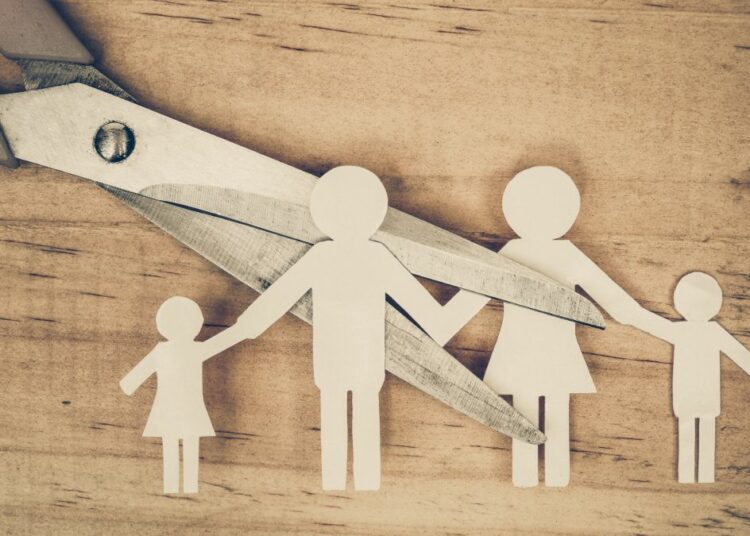The author and New York Times columnist David Brooks made waves in the March 2020 issue of The Atlantic, where he argued that “The Nuclear Family Was A Mistake.”
Brooks’ argument runs thus: In previous centuries, mankind lived not in nuclear families of parents and children, but in large, extended kin networks. These kin, he argues, were not necessarily related by blood—some were the people you hunted with, and some were the people you migrated with. Fast forward several thousand years. “Through the early parts of American history,” Brooks continues, “most people lived in what, by today’s standards, were big, sprawling households.” The Industrial Revolution changed all of that, as individual men and women fled the farm, and their families, to pursue life in the big city. When these men and women formed families, they were not the big, sprawling kin networks of old. Rather, they were nuclear families—two parents, with children.
But the nuclear family, Brooks argues, is “inherently fragile.” It worked briefly, in a historical blip from roughly 1950-1965, but has been falling apart ever since. Whereas extended families “have two great strengths.” “The first,” Brooks continues, “is resilience. An extended family is one or more families in a supporting web.” When one relationship falls apart—someone leaves, or divorces, or a relationship is strained—there are grandparents, cousins, uncles, etc. to step in and take care of any children. There are people there to fill the gaps. Brooks continues, “The second great strength of extended families is their socializing force.” Children have numerous adults to look up to for education and moral instruction.
But those families are gone, and the nuclear family is in crisis. What are we to do? Brooks’ solution is “forged families”—“In reaction to family chaos,” he writes, “accumulating evidence suggests, the prioritization of family is beginning to make a comeback. Americans are experimenting with new forms of kinship and extended family in search of stability.” Part of this “comeback,” he believes, is truly a return to prior ways, as more Americans are now living in multigenerational homes than before—many of them adult children returning to live with parents, and aging parents moving in with children. But some of this movement looks a bit different. Brooks writes, “The past several years have seen the rise of new living arrangements that bring nonbiological kin into family or familylike [sic] relationships.” He documents networks of single mothers who share spaces and childcare duties, co-housing communities for young parents, or other co-housing units where residents share some common meals and duties but have private spaces. “For decades we have been eating at smaller and smaller tables, with fewer and fewer kin,” Brooks closes. “It’s time to find ways to bring back the big tables.”
This lengthy essay had its controversial moments, and the Institute for Family Studies published six separate responses to it. Many of these responses share common themes.
Wendy Wang and W. Bradford Wilcox point out that yes, more Americans are now living in multigenerational homes, but data show that “Adults who live with their parents are less happy than others.” And similar research shows that parents are happier when their adult children leave the house. Scott Stanely wonders, “how many elderly Americans want to have less autonomy and live with their kin?” Many, he continues, “cling to their autonomy and will fight to keep it until reality forces them to do otherwise.”
Andrew Cherlin and Kay Hymowitz both point out research that flies in the face of David Brooks’ historical narrative. “Scholars now pretty much agree,” Hymowitz writes, “that the nuclear family household has been the ‘dominant form’ in Western Europe and the United States since the dawn of the industrial era.” There is something innate in men and women alike that leads them to form pair bonds, which she calls the “inextinguishable human urge for pair bonding.” Furthermore, she continues, “In data published in a 1994 paper, [Steven] Ruggles estimated that as of 1880, more than two-thirds of white couples, the large majority with children, lived in independent households. The anomaly was the extended family, not the nuclear family.” Cherlin agrees: “in the past, white families were rarely centered on large family groups.” And he believes that Brooks’ “forged families” have their own fragility problems: “These kinship ties are easier to break because they are voluntary; neither strong norms nor laws stand in the way of ending them.”
Richard Reeves agrees with Brooks that “both the quality and the quantity of our relationships matter,” and continues, “The idea of a “chosen” family is consistent with the development of modern liberalism, in which relationships are contingent rather than coerced.” And Rod Dreher cites the decline in religious commitment for the failure of the family. “One can only hope for [forged families’] success,” but without religious commitment, it seems doubtful.”
So where are we left, after all of that? The authors all agree that the nuclear family is on the decline, and this presents problems—mostly for children. They all agree that unfettered desire for personal autonomy and freedom has made families more fragile, and again, life for children harder.
But many of the experts at the Institute for Family Studies contend that in calling the nuclear family a “mistake,” Brooks is missing rather a lot.




















Discussion about this post